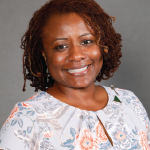
Andrii Yalanskyi / shutterstock.com
In The Will to Govern Well, Glenn Tecker and co‐authors suggest that for associations, the term “governance” refers to “the decision‐making units of the organization and [the] relative powers, authorities, and responsibilities that each possesses, as well as … the composition of each unit and how individuals are selected to participate in each.”
In 2019, the ACR Board of Directors approved a Governance Task Force to review the ACR’s current governance structure. This 10-member task force was led by Abby Abelson, MD, MACR, and Angus Worthing, MD. I have said this many times over the past year in virtual meetings with the task force, but I would again like to thank all of the members for the hard work and creative thought they put into this process (see box for a list of members).
The task force was charged with exploring governance structures and making recommendations that support organizational nimbleness, innovation, collaboration and inclusivity. These tasks included:
- Revisiting and updating the roles of the Board of Directors (BOD) and committees to determine the structure that best meets our current and future member needs;
- Codifying structures of communication and collaboration between the arms of governance (e.g., the Executive Committee [EC], BOD, committees, staff);
- Promoting organizational efficiency (e.g., meeting timing, frequency of meetings, use of virtual meetings, invitees, agendas), identifying opportunities for greater member involvement in governance that is inclusive and inviting to more members without sacrificing the efficiency of our current structure;
- Reassessing the process of nominations and appointments to address issues that have been identified and others that may not yet have been identified;
- Assessing the role of diversity in our governance structure, including, but not limited to: race, sex, practice environment, sexual orientation, geography, age and discipline; and
- Identifying mechanisms for ACR governance to receive ongoing strategic input from key internal and external audiences.
This past spring, the task force presented 28 recommendations to the Board for discussion and the changes that were approved will be implemented starting in 2022. As chair of the Committee on Nominations and Appointments for 2022, I want to highlight the changes to this committee for the 2022–2023 volunteer cycle because the nominations process will open this March.
Changes
The role of the ACR Committee on Nominations and Appointments is essential and significant. It identifies possible volunteers through self- and peer-nomination and selects the organizational leadership with an effort to balance experience level, demographics and practice setting. To give the committee greater time to focus on finding the best possible slate of individuals for the organization, it will no longer have the additional task of selecting the annual Awards of Distinction.
The review of members nominated for these awards will be performed by a new Awards and Membership Committee. The ACR Awards & Membership Committee, led by the ACR President-Elect, will oversee membership processes and promote the ACR and ARP annual awards programs. The process for nominating members for the awards will remain the same, but the new committee will be the group that selects them for approval by the ACR Board of Directors.
The goal is to be very transparent in the process for naming each member to a committee, the Board or leadership.
The Rheumatology Research Foundation will have its own committee for its nominations process starting in 2022. The Foundation volunteer timeline will work in tandem with the ACR’s.
The makeup of the ACR Nominations and Appointments Committee has been changed to ensure the diversity of our membership is represented. Changes in the constitution of the committee include adding a member representing experience in equity initiatives, an additional member in community practice, an early career voice and a member from the ACR Board of Directors. A more diverse committee will bring different perspectives to the nominations process.


